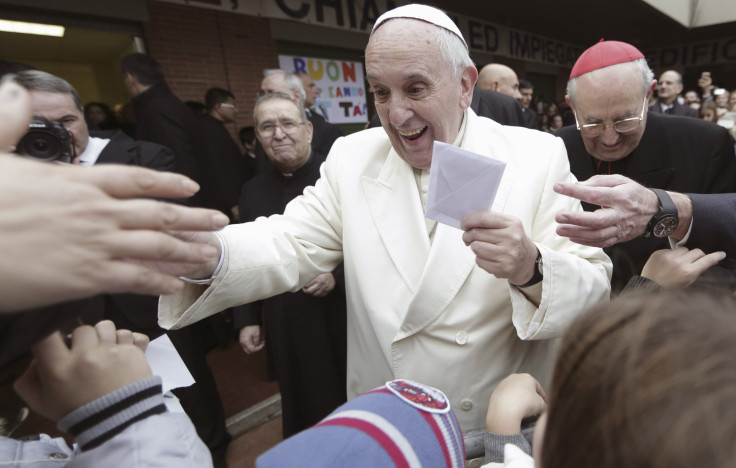Pope Francis’ Cardinal Selection Emphasizes ‘Truly Global’ Roman Catholic Church

Bishops from Tonga, Cape Verde and Mozambique are among the 15 cardinals Pope Francis has just named to the College of Cardinals. The men – most of whom hail from developing countries – will be responsible for electing the next pope. They will be formally inducted into the College of Cardinals on Feb. 14.
“I think when people look back at his time as pope, this kind of initiative will appear as one of the most significant changes he made in the ecclesial culture of the church,” James Bretzke, a professor of moral theology at Boston College, told International Business Times about the news. “He has changed the usual career path to becoming a cardinal.”
Among the 15 chosen Sunday, 14 countries are represented. None come from the United States or Canada. Just one is a member of the Roman Curia, which is the papacy's administrative body. Three are bishops, not archbishops -- a departure from the way cardinals typically get their red hats.
“He’s trying to turn away from that career path of honors when people expect the red hat to fall on them,” Bretzke said. “It’s like a president or CEO of company ignoring his senior vice presidents and going off to select branch managers of various places -- outside headquarters – to his inner circle to advise him.”
Francis’ latest move is aligned with his reputation for emphasizing a pastoral future for the church – rather than one steeped in clericalism and careerist ambition. On Dec. 22, Francis explicitly attacked the Roman Curia, accusing members of suffering from a “spiritual Alzheimer’s,” a “pathology of power" and “terrorism of gossip.”
On several occasions Francis has urged church leaders to “reach the fringes.” The same way Jesus Christ traveled and spread his message outside Jerusalem, the Catholic Church should follow in his footsteps, the pope has said. Francis has reflected this example as well. He has washed prisoners’ feet, installed public showers for the homeless in St. Peter’s Square, and publicly denounced slavery and human trafficking.
“He wants to raise world consciousness that this church is truly global,” the Rev. James M. Weiss, associate professor of theology at Boston College, told IBTimes in an email. “That goal can't be reached by continuing to appoint cardinals in places like Venice. But Cape Verde? Tonga? Myanmar? They bring into the highest circles of the church an awareness of a world on the edges, a truly global church.”
The number of Catholics worldwide has been rising. According to the latest figures taken from the Church’s Book of Statistics updated to Dec. 31, 2012, the Americas and Africa are the continents that have experienced the largest increase, followed by Asia, Europe and Oceania. But in the number of priests, only Africa and Asia saw an increase.
It’s these newer regions that Francis is embracing with his new cardinal selection. True to his reputation as a reformer, Francis ignored one rule popes have followed: to elect archbishops from traditional dioceses from which cardinals have been chosen in the past. For instance, rather than electing an archbishop from a larger Italian diocese like Turin or Venice, known as “cardinal sees,” he nominated Monsignor Francesco Montenegro, archbishop of Agrigento, Sicily.
“He’s sending out a message that he’s not going to be bound by these traditions if they don’t serve a larger purpose,” Bretzke said.
Most of the new cardinals rose in the church under Pope John Paul II and Pope Benedict XVI, and little is known about the conservative or liberal leanings of the new members. However, Vatican experts agree they are most likely moderates who are pastoral rather than political.
“This is not supposed to be seen as special honor; it’s a job,” Bretzke said. “He wants the church to be more global in new ways. To use the old expression – all roads lead to Rome – what he has shown is, roads may lead to Rome but they’re not one-way. They are two-way streets.”
© Copyright IBTimes 2025. All rights reserved.





















